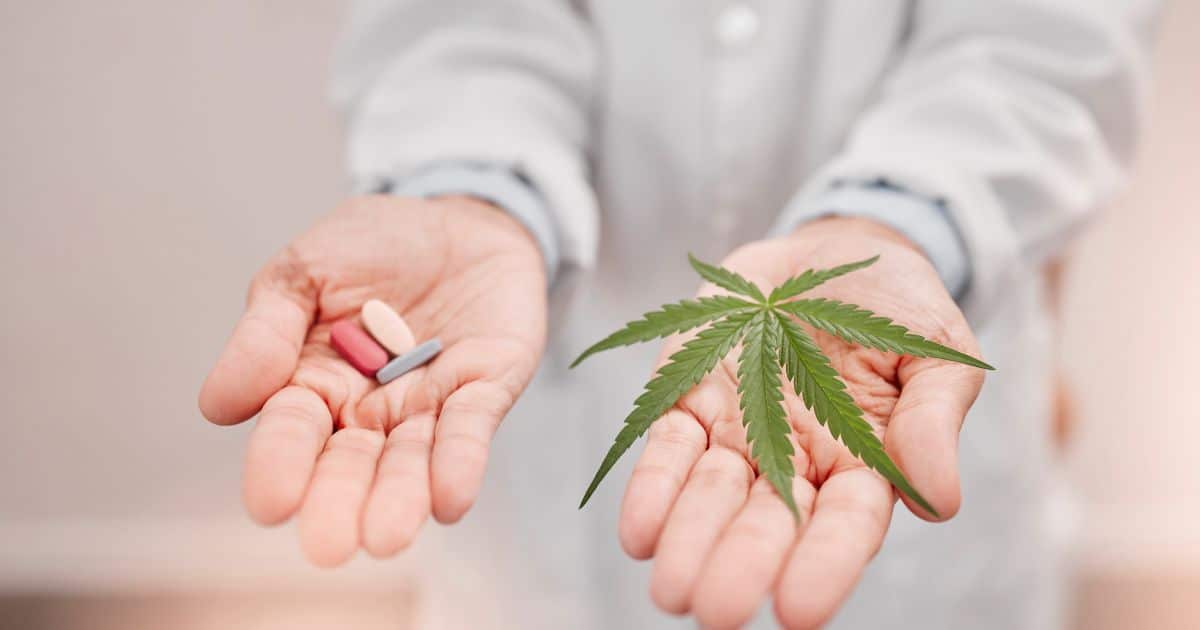The opioid crisis has reached epidemic proportions in the United States, with over 100 people dying daily from an overdose. On top of this alarming statistic; unregulated opioids are also a significant concern due to their potentially toxic ingredients and lack of regulation over manufacture and distribution.
In light of this growing health crisis, many have turned to cannabis as a potential alternative for managing pain and reducing cravings for opioids. In a recent federally funded study published in the International Journal of Drug Policy, researchers at the British Columbia Centre on Substance Use and UCLA surveyed people who used cannabis and unregulated opioids over two years to test the theory that marijuana is an effective harm-reduction tool for those struggling with opioid misuse.

Their findings suggest that cannabis may be a viable option for those looking to reduce their reliance on unregulated opioids. In this article, we’ll explore the results of their study and the potential implications for those living with chronic pain and addiction.
Background on Unregulated Opioids and the Drug Toxicity Crisis
Unregulated opioids are synthetic and semi-synthetic drugs that have been produced without any government regulation or oversight. These products are often cheaper than those sold through traditional channels, making them attractive to individuals who may be unable to access regulated drugs due to cost or availability concerns.
Unfortunately, unregulated opioids can contain toxic ingredients such as fentanyl, leading to serious health problems or even death. This has led to a drug toxicity crisis in many parts of the world, with overdose deaths linked to unregulated opioids rising.
At the same time, there is growing interest in cannabis as an alternative treatment for pain and addiction management. It has long been known that marijuana can help reduce opioid cravings among those with substance use disorders; however, little research has been done on the effects of cannabis substitution among those using unregulated opioids. This is why the British Columbia Centre on Substance Use and UCLA conducted a study to explore this further.
Results From Study
The federally funded study surveyed 205 people who used cannabis and unregulated opioids from December 2019 to November 2021. Participants were asked about their motivation for using marijuana, as well as the effect it had on their opioid cravings.
The results of the survey showed that 58% of participants reported using cannabis in order to reduce their cravings for unregulated opioids. At the same time, more than half also reported a reduction in their opioid use during periods of cannabis use. These findings suggest that marijuana could be an effective harm-reduction tool for those who are struggling with unregulated opioid misuse.
The study’s authors suggest that this may represent the first investigation into the outcomes of intentional cannabis use to manage opioid cravings among those using unregulated opioids. As such, their findings could have important implications for future research into using cannabis as a harm-reduction strategy.
Impact of Cannabis Substitution as Harm Reduction Strategy
The results from this federally funded study suggest that cannabis could be an effective option for those looking to reduce their reliance on unregulated opioids and manage cravings. This could potentially significantly impact the current drug toxicity crisis, as it may provide an alternative treatment option for those living with chronic pain and addiction.
In addition to offering a safe and effective way to manage cravings, cannabis has also been found to provide relief from neuropathic pain and improve overall mental health. This could be especially beneficial for those struggling with unregulated opioid misuse, as it may help reduce the risk of relapse and provide relief from symptoms associated with withdrawal.

Finally, increasing access to cannabis products could be essential to reducing reliance on unregulated opioids and helping those affected by addiction. This is especially true in jurisdictions where cannabis is not currently legal, as limited treatment options are available to those struggling with opioid misuse.
Further research is needed to explore the long-term effects of cannabis substitution among those using unregulated opioids and its potential implications for addiction management. Additionally, increasing access to cannabis products could be an important step towards reducing reliance on these drugs and improving the lives of those affected by addiction.
Ultimately, more research is needed to determine the full impact of cannabis substitution as a harm-reduction strategy, but this study provides an encouraging first step in that direction.
Policymakers should consider these findings when developing strategies for addressing the opioid crisis, as increased access to cannabis products may be an essential step towards reducing reliance on unregulated opioids and improving the lives of those affected by addiction.
Keep updated on all the latest news and updates in the Cannabis industry here at Beard Bros Pharms by signing up for our Friday Sesh Newsletter here. Always Dank and Never Spam!
- Maryland Leads the Way in Cannabis Pardons, Setting an Example for Much-Needed Cannabis Reform
- Military Construction and Veterans Affairs Bill Amendments Could Change Medical Marijuana and MDMA-Assisted Therapy Options for Veterans
- Thailand’s U-Turn on Recreational Cannabis Use
- Chicago Police Department Revises Policy on Searches Based Solely on Marijuana Odor
- Ohio’s Senate Bill 56 Postponed, Leaving Details of Issue 2 Still Unresolved
- Sports Stars and Well Known Entertainers Join Forces Calling on Trump for Cannabis Reform













